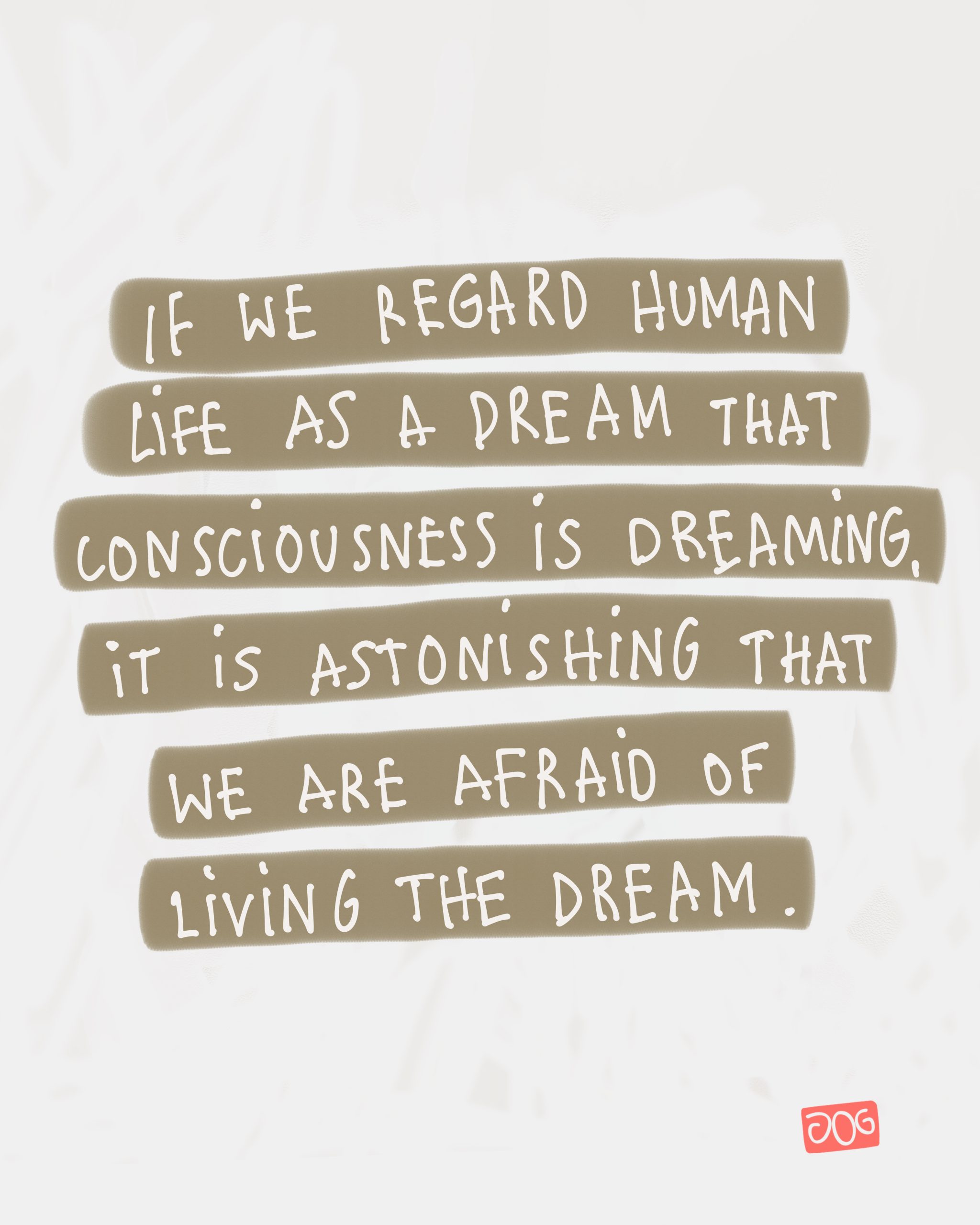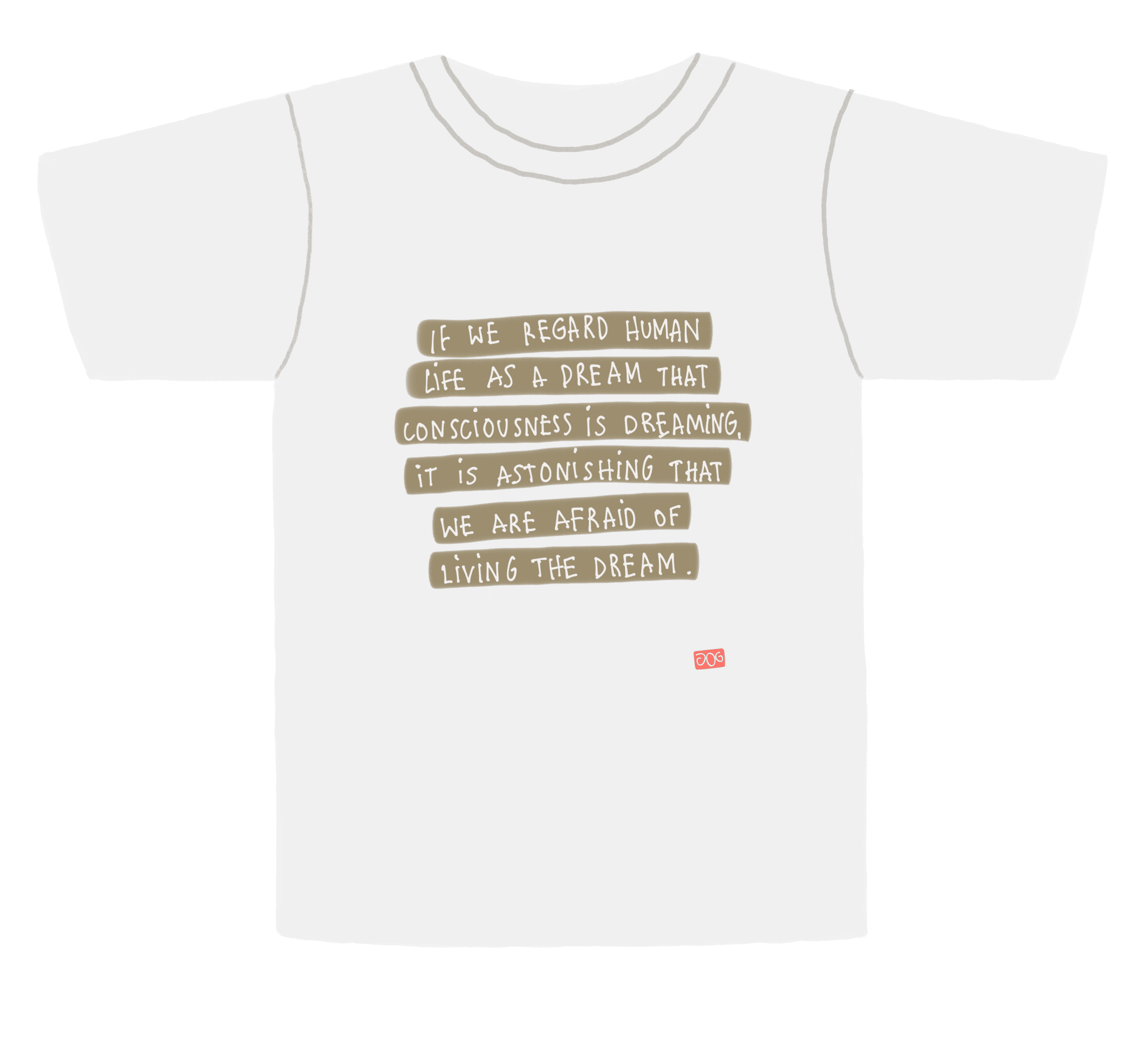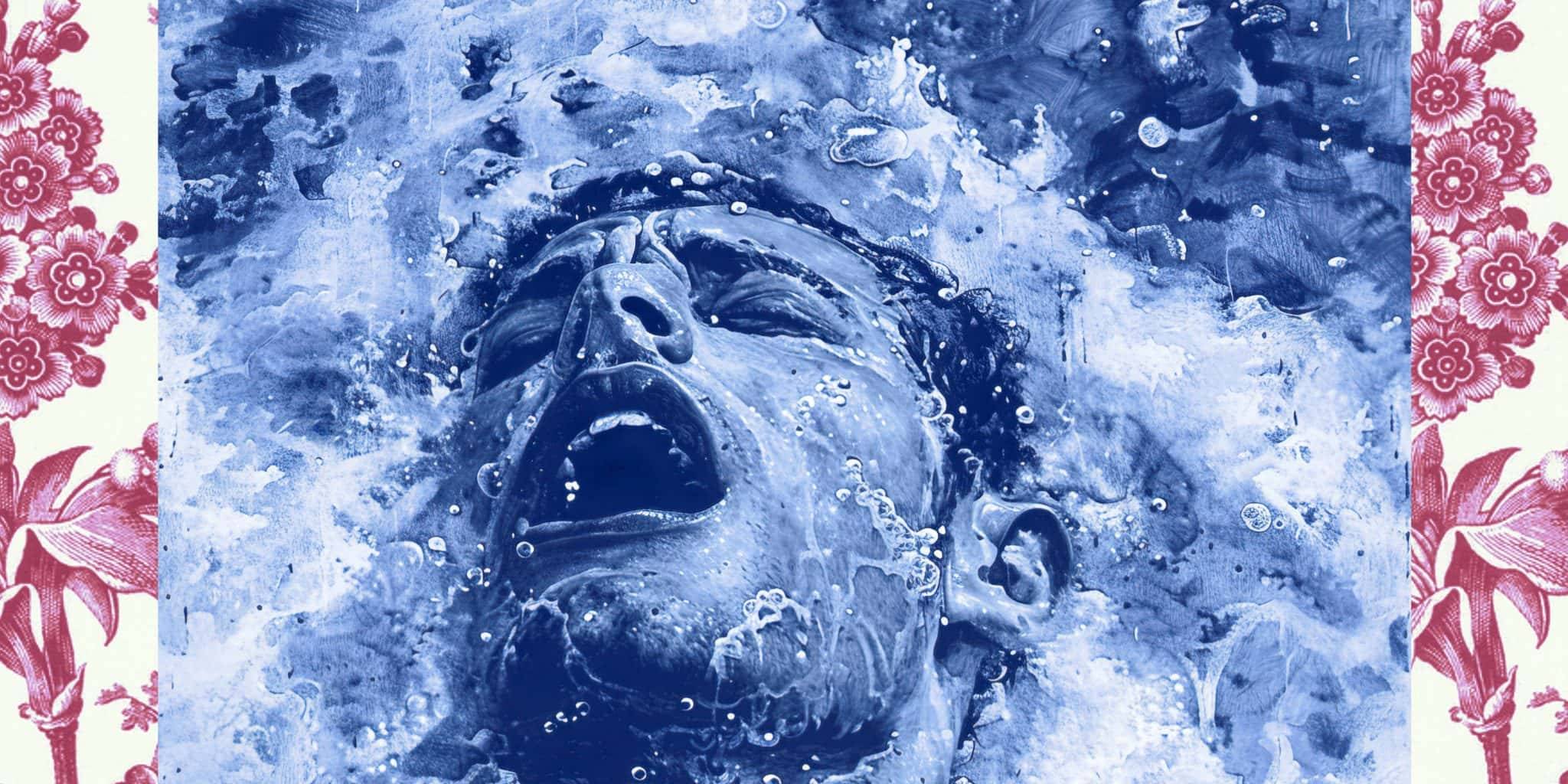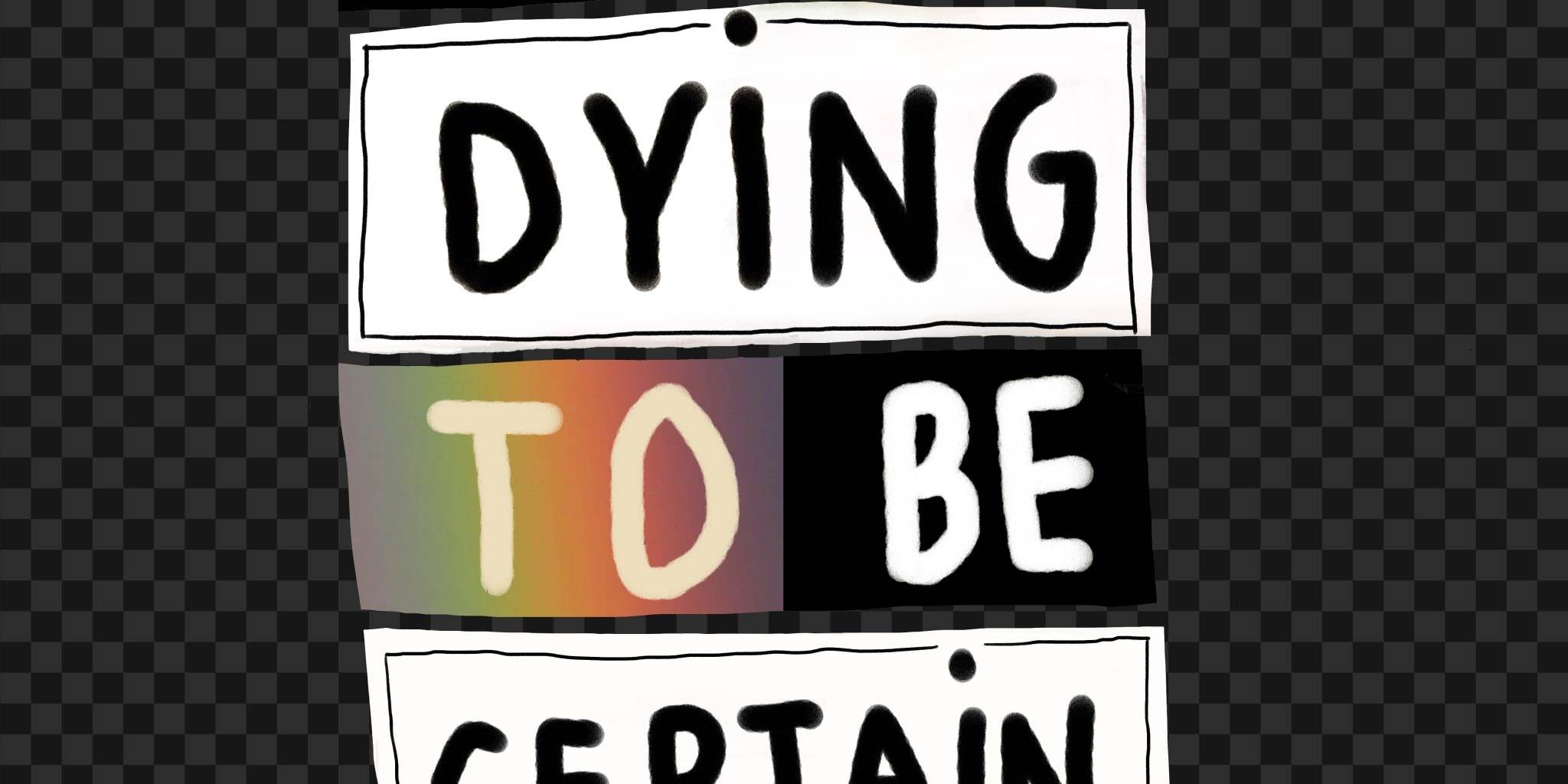Living the dream
Our waking life is a dream that consciousness is dreaming.
An idea rooted in some spiritual and philosophical traditions is that our life is like a dream.
An idea rooted in some spiritual and philosophical traditions is that our life is like a dream. What we call reality is fundamentally mental or immaterial, and the sense of a distinct “I” is an illusion.
Our waking life is a dream that consciousness is dreaming.
Recognizing life as a dream doesn’t mean we dismiss it as inconsequential. The earth realm has its rules, and we still can’t fly when jumping out of a window. Also, it doesn’t negate its meaningfulness. Our relationships remain personal and important.
Instead, the paradox lies in living fully engaged in the dream, while knowing its illusory nature, much like building a sandcastle even though we know the tide will wash it away. We enjoy the time spent with loved ones and the joy it brings, despite its impermanence.
We believe ourselves to be separate entities rather than expressions of a unified consciousness.
Understanding that ultimate reality is beyond fear can actually inspire us to live more in the present, with compassion and creativity.
We are deeply attached to our identity, our comfort, and security, which makes the dream feel real and significant. Fear arises when these attachments are threatened.
Fear is an old survival mechanism. Our ancestors who were cautious and responded to threats survived to pass on their genes.
It often arises from the ego’s desire to protect itself. The ego fears its dissolution and anything that threatens its constructed identity.
By transcending the ego's illusion of separateness, we realize that we are the dreamer, not just a character in the dream.
Social and cultural conditioning also amplifies the perception of life as serious and challenging, adding to our fears of failing and feeling inadequate.
After all, fear arises from ignorance of our true nature. We believe ourselves to be separate entities rather than expressions of a unified consciousness. This ignorance creates a fear of death, loss, and suffering.
Overcoming this fear involves deep self-awareness and understanding our true nature. By transcending the ego’s illusion of separateness, we realize that we are the dreamer, not just a character in the dream. As we accept the transient, dream-like nature of life, we embrace it fully, with compassion and creativity, allowing us to find freedom and peace and truly “live the dream.”
You may also like
What if learning to feel were like swimming lessons
Learning to feel is like learning to…
Look, bitch. Look.
In a broadcasted conversation with…
Are you dying to be certain
Two old friends, John and Frederick sat…






